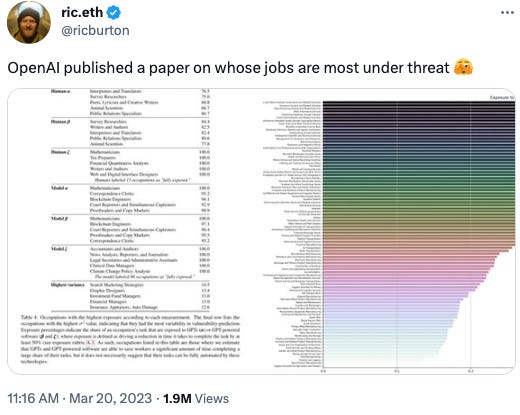Will GPT-4 kill survey research?
Plus, the 2022 CES is out, public opinion 20 years after Iraq, what's "woke", and where Democrats still win white voters.
No. 259 | March 24th, 2023
🤖 Artificial Intelligence
@ricburton: OpenAI published a paper on whose jobs are most under threat 🫣
Mathematicians — 100%
News analysts, reporters, and journalists — 100%
Blockchain engineers — 94%
Survey researchers — 84%
@PatrickRuffini: AI polling idea (Twitter)




